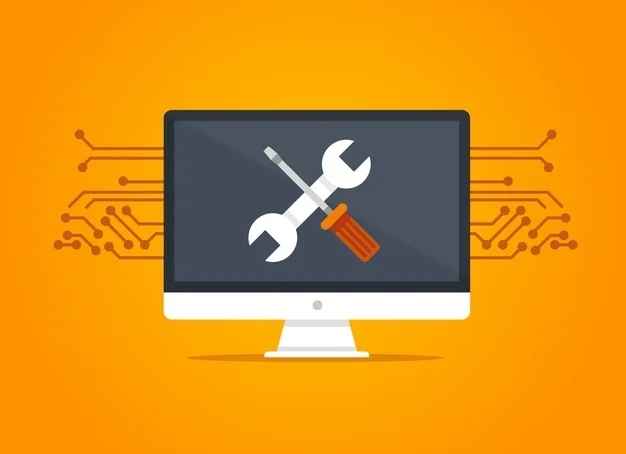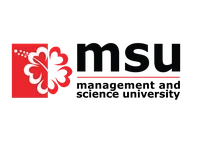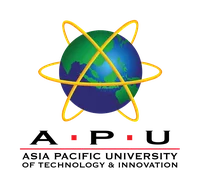
The demand for professionals in the tech field has been on the rise and will continue to grow in line with the Fourth Industrial Revolution (IR 4.0). As automation increases, it is said that most traditional jobs will be automated.
While this news may be worrying for some, it's only good news for those pursuing a path in Computer Science and IT.
In this guide we'll cover everything you need to know about choosing and applying to a course in Computer Science or IT in Malaysia.
But first, let's address the one question everyone has in mind: How are the courses different?
Difference between Computer Science and Information Technology courses
Choosing between Computer Science and Information Technology courses can be confusing, as both fields are closely related yet distinctly different. Here are the details:
- Computer Science is a study of how computers work, mostly from the theoretical and mathematical perspective. This course includes four major areas of computing: theory, algorithms, programming languages, and architecture.
- Computer Engineering is a discipline that integrates several fields of computer science and electronics engineering required to develop computer hardware and software.
- Software Engineering is a study of how software systems are developed, including topics such as project management, quality assurance, and software testing.
- IT is probably the easiest course among the four. This course is primarily focused on subjects such as software, databases, and networking.
All four courses teach fundamentals of programming and computer science, so you can choose any one to get into a career in technology.
Now that you're clear about the differences between these courses, let's look at other things.
What are the skills needed in IT or Computer Science in Malaysia?
The tech field is very diverse. We encourage you to try different things during your study years to figure out what you like. For example, you can try:
- Python - Programming & language
- Web development - Html, css, javascript
- System administration - Learn to build/assemble your own PC, install the Linux operating system and learn more about Linux
- Network administration - Set up a small network, install a router simulator on your PC and learn to use it, understand subnetting, routers and switches
- Design graphics or animations
You can also have a career in tech as a Business Analyst, Project Manager, Product Manager, Software Tester, etc.
What are the entry requirements for this course?
Entry requirements depend on the study level and institution, but in general they are as stated below.
a) Diploma
- SPM / SPMV / O Level - 3 credits including Mathematics, OR
- UEC - 3 subjects at grade B including Mathematics
- IELTS - Band 4.0
b) Bachelor's degree
Foundation / Matriculation: Pass with a minimum CGPA 2.0 and credit in SPM Maths or equivalent
STPM: Minimum 2Cs (including credit in Maths) AND credit in Maths in SPM or equivalent
UEC: Pass with minimum B in 5 subjects (including English and Maths)
A-Level: Minimum 2 Passes AND credit in Maths in SPM or equivalent
Canadian Pre-U: Pass with average marks of 55 inclusive of credit in Maths in SPM
Australian Year 12: Pass with average of 55 and credit in Additional Maths in SPM or equivalent
South Australian Matriculation (SAM): Pass 5 subjects with minimum TER score of of 55 or an average of 55
NSW High School Certificate (HSC): Pass with ATAR 55 (minimum 10 units) including Maths and no subjects score below 50
How long is a Degree or Diploma in Computer Science / IT?
Duration depends on the level of study and institution:
- Diploma course is 2 or 2.5 years
- Bachelor's degree is usually 3 years
Universities and colleges with Computer Science and IT degrees in Malaysia
Computer Science and IT is a popular course in Malaysia and there are many universities and colleges in Malaysia offering this course.
1. Asia Pacific University of Technology & Innovation (APU)
2. Management & Science University (MSU)
Universities in Malaysia with courses in Computer Science, IT
-

Sunway College
FeaturedSelangor, Malaysia
-

Selangor, Malaysia
-

Malaysia
-

Sunway University
FeaturedSelangor, Malaysia
-

Asia Pacific University (APU)
FeaturedWP Kuala Lumpur, Malaysia
-

Malaysia
-

Selangor, Malaysia
-

SEGi University
FeaturedSelangor, Malaysia
-

Malaysia
-

Malaysia
See more related universities
What are the subjects you will learn in this course?
Here are some of the core subjects that you will learn in this course:
- Introduction to Programming
- Fundamentals of Operating Systems
- Computer Organization
- Mathematics for Computing
- Multimedia
- Software Testing
However, another important thing you should know is that this course offers specializations, as mentioned in the earlier section. Some of the specializations you can choose from include:
- Cloud Computing
- Mobile Computing
- Business Analytics
- Software Development, and
- Network and Security
In other words, besides the core subjects you'll study, you also have the option to choose elective subjects based on the branch of the computer science course you select. Each specialization offers different elective subjects, so it's important to carefully consider your strengths and weaknesses in computer science before choosing a specialization.
What is the average minimum salary for Computer Science or IT jobs in Malaysia?
Your starting salary in computer science and information technology jobs will depend on the type of company, position, and location of the company, to name a few. However, we looked at the JobStreet's salary report and came up with these estimated starting salaries.
Programmer: RM 2,300
Web Developer: RM 2,700-3,100
System Administrator: RM 2,800-3,900
Network Support Engineer: RM 2,400-3,100
UI Designer: RM 2,500-4,000
Software Development Engineer: RM 2,900-4,300
Systems Analyst: RM 2,900-4,800
Mobile Application Developer: RM 3,000-4,200
Database Administrator: RM 3,500-5,100

Your skills make a huge difference to your salary too! Make sure that while you're studying you're not only doing class assignments and projects, but also developing real skills by doing pet projects. For example:
- Develop a simple mobile app
- Develop a website
- Design user interfaces and upload to behance.net
- Learn wireframing
- Improve your writing skills in English





 +60173309581
+60173309581
